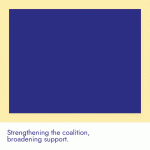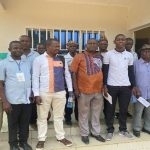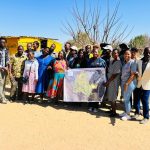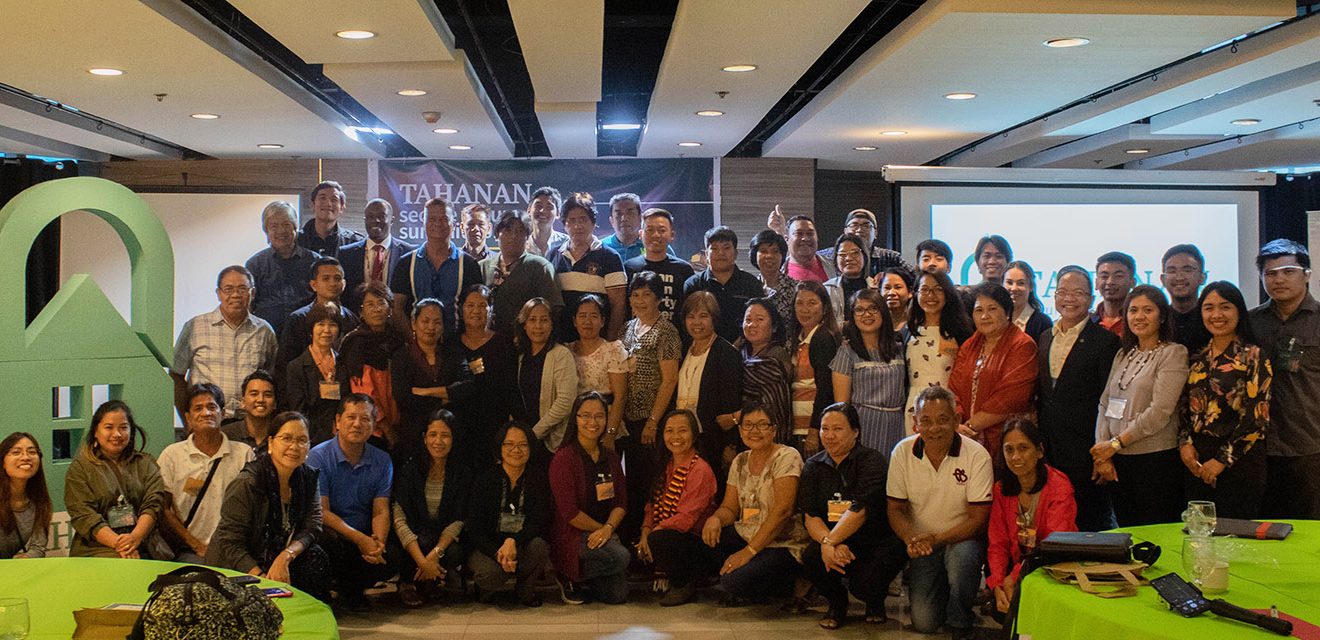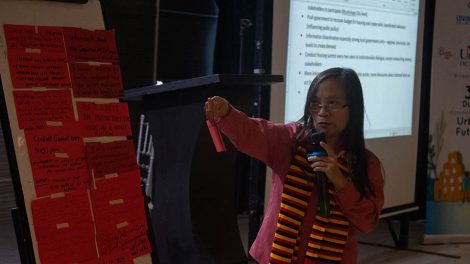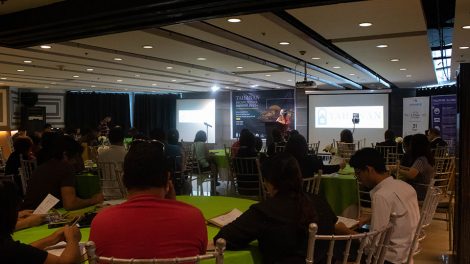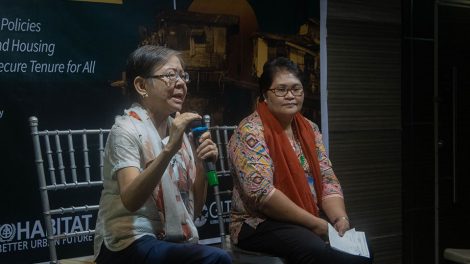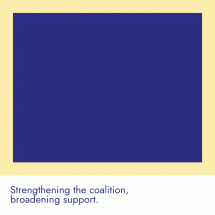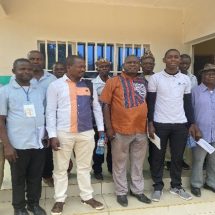The first summit organized by GLTN’s implementing partner, the Technical Assistance Movement People for Environment, Inc. (TAMPEI), entitled “TAHANAN Secure Tenure Summit 2019” was held successfully in line with the month-long Urban October celebrations–31 days of promoting a better future. ‘Tahanan’ is a Tagalog word for ‘home’ which connotes a place for every Filipino where they feel safe and comfortable. It is more than the four walls and a roof over the head, a place where they grow and develop themselves. At the conference, TAMPEI officially launched the ‘iSyudad’ publication which contains a compilation of stories on urbanization from the perspective of informal settlement dwellers from various urban areas in the Philippines. This publication was made possible through support by UN-Habitat/GLTN.

Attended by more than 80 participants, 44 of which were women, the summit gathered participants from different sectors such as national government agencies, local government units, international and regional organizations, Civil Society Organisations and of course community leaders and representatives. With the theme ‘Influencing policies on land and housing towards secure tenure for all’, the summit sought to showcase how participatory processes addressed tenure security issues in the communities where TAMPEI and their partner Homeless People’s Federation Philippines (HPFP) have worked with.
Commencing with the global agenda and development frameworks, Mr. Chris Rollo, UN-Habitat Philippines Programme Manager presented on how the 2030 Sustainable Development Goals (SDG) no. 11 and the New Urban Agenda have been localized in the Philippines. Mr. John Gitau of UN-Habitat/GLTN presented the Fit-for-Purpose Land Policies through the framework of the continuum of land rights. Both presenters tackled the rising challenges due to urbanization and the bulging population and with the mutual emphasis on the space and land. Due to the rapidly accelerating urban growth, the need for space and land is pressing. The unbridled escalating value of land due to commercial activities pushes the urban poor to the fringes of the development. This growing demand in economic activity threatens the tenure security of people living in urban areas and this drives them away from their source of livelihood and from where they live. These are some of the issues that are addressed by the Fit-for-Purpose Land Administration which promotes security of tenure by examining how the government recognize, record and review the people’s relationship to land thus supporting securing their rights to it.

Quoting from a presentation by Foundation for the Development of Urban Poor (FDUP) that “It takes FOREVER to secure permits”, the second session of the summit presented what HPFP and FDUP were doing to address tenure security through participatory planning and land acquisition through a community mortgage program (CMP). This presentation demonstrated how community-led initiatives can advance the cause towards achieving security of tenure and the need for strong political will in unraveling issues on tenure insecurity.
Government perspectives and strategies were also presented where government initiatives were showcased, and a statutory case made for policy advocacy. Given the complexities of addressing land and housing issues, there are on-going efforts to sustainably and inclusively promote the people’s process through the institutionalization of the newly created Department of Human Settlements and Urban Development (DHSUD) which is mandated to be the overall coordinating and implementing body for housing, human settlements and urban development which are all founded on security of tenure.
In closing, Mr. Rollo strongly proposed that this summit be made an annual event that is part of the Urban October celebrations, pointing that it would serve as an important forum for discussions on current efforts by all invited stakeholders and also serve as a platform for pushing through policies on land and housing which promote tenure security for all.

